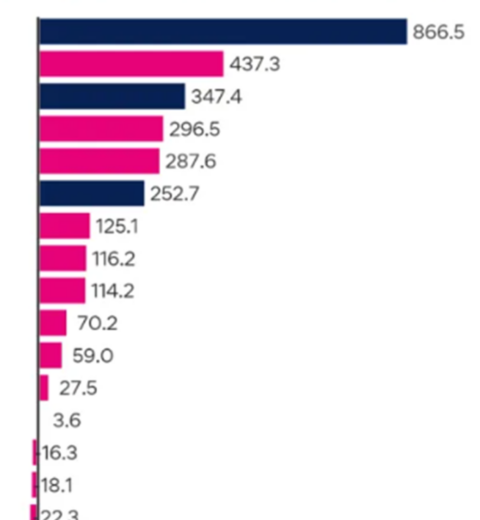By Jessica Bahr Article Courtesy : SBS
In 2023, many Australians felt a shift in workplace culture. Some offices moved to a four-day work week, while others had employees quitting in droves. What will the new year hold?

Office culture and Australian workplaces have been through a myriad of changes in recent years.
Throughout the COVID-19 pandemic, many industries began working remotely, and some continue to feel the effects.
In that period, and continuing through 2023, many workers and workplaces began to reevaluate their priorities and expectations, and concepts such as a four-day work week, ‘quiet quitting’ and the ‘great resignation’ became regular topics of conversation.
In 2024, will they come to fruition?
Work flexibility ‘more important than ever’
Professor Julia Richardson, an expert in careers and human resource management and head of the School of Management and Marketing at Curtin University, said flexible working and the ability to work remotely will remain important.
According to the Australian Bureau of Statistics, 37 per cent of employed people regularly worked from home, down from 40 per cent in August 2021.
While many employees are eager to work from home, for employers, this can pose challenges to workplace safety, connection with colleagues, and work-life balance.
Richardson said that, while some workplaces have been eager to get staff back into offices full-time, employees increasingly prioritise flexibility and being able to work remotely.
She expects Australia’s tight labour market and low unemployment rate — which was 3.8 per cent in November — will give employees more power in negotiating.
“Organisations are still trying to navigate how to work with people who are working from home,” she said.
“Because (employees) know that it’s a very tight job market, a very tight labour market, then the employee can quite easily say now, ‘Well, if you are not going to let me work from home, I’ll simply find an employer who will.'”
Richardson said the employment relationship has become “way more complicated than it has ever been before.”

Jahin Tanvir is CEO of the Australian School of Entrepreneurship, which is a training provider based around future work and helping Australians prepare for employment.
Tanvir said many young workers value working from home to improve work-life balance.
“Going to the office and commuting for hours in many cases, it doesn’t allow them time to take care of the other areas of life,” he said.
“And we know gen Z are very big on things like self-love and wellbeing … and to be able to do those things, you need time for that.”
Will a four-day week become the norm?
The concept of a four-day work week has become topical in recent years , and in 2023, the conversation continued to grow. According to research from the not-for-profit 4 Day Week Global, reducing employees’ hours at work can improve productivity and be beneficial for both individuals and businesses.
Richardson said that, while the notion of a four-day work week would remain popular, condensing five days of work into four would be complex for employers.
“It could have negative benefits in the sense of employees faced with what we call ‘work intensification’,” she said.
“That means working harder during those four days, maybe having to do away with my lunch break, no more coffee breaks, that sort of thing.”
Richardson said employers may be considering the ramifications of this intensification on workplace health and safety regulations and employees’ psychological wellbeing.

Joseph Mitchell, acting secretary of the Australian Council of Trade Unions, said the union movement is considering the viability of a four-day week across different industries.
He said shorter working hours for no pay would mean significant changes and challenges for critical sectors.
“Not everyone works in offices and when you think about what shorter working hours for no loss of pay looks like across the economy, it’s going to be really different in 24/7 industries,” he said.
“Shorter working hours might mean a significant change in the way work is performed.”
Did the ‘great resignation’ happen, and will it continue?
In recent years, the ‘great resignation’ has also become a topic of conversation in media and workplaces, suggesting workers were quitting their jobs in droves.
According to PwC’s 2023 Hopes and Fears Global Workforce Survey, 26 per cent of employees said they were likely to change jobs, up from 19 per cent the previous year.
In 2021, the firm’s What Workers Want report found 38 per cent of Australian workers were planning to leave their job within the next year.
Richardson said that, while many people may have quit their jobs, the ‘great resignation’ is not all it seems, particularly in Australia.
She said many workers were reevaluating their careers and lifestyle, which had led to an increase in people changing jobs — not simply opting not to work at all.
“As much as we can say that they were resigning from one job, it wasn’t like they were resigning from work altogether and not doing anything,”
“So that’s the big mistake I think some people make.”
Will workplace gender equality improve in 2024?
In 2023, Australia’s gender pay gap narrowed to 21.7 per cent, but women still earn less than men.
On average, Australian women earn 78 cents for every dollar men earn, with an annual pay gap of $26,393.
In 2024, Mitchell expects further advances will be made toward gender equality in the workplace.
“Gender equality is now an objective of the Fair Work Act, which means when the Fair Work Commission makes decisions, it’s a really important part of their process,” he said.
He said initiatives including increasing parental leave, pay rises in female-dominated sectors, and targeted interventions will continue to improve outcomes for women.
What do workers expect in 2024?
Mitchell said that, while the past few years have been challenging, workers have also seen improvements in their rights and collective bargaining power.
He said this has led to “phenomenal” outcomes for workers, with many expecting more from their employers and advocating for increased rights at work.
“People are putting forward their ideas for what their work should look like in a much stronger way,” he said.
“And we’re going to see that just improve, particularly where abilities for the big businesses to undercut working people’s wages and addition are removed.”
When it comes to young workers, Tanvir believes employee retention will be a major challenge for bosses and business owners this year.
He said many young people opt to leave a workplace after a short time if it doesn’t match their values or offer development opportunities.
“Young employees, gen Z employees, expect much more from a company than they would five, 10 years ago,” he said.
“The idea of people working at a company for five, six, seven years — things that I would see from my parents’ generation — I don’t believe that exists anymore because people are more selective of where they work, where their time goes, their career progression and things that they value.”
He said while some older generations believe young people “don’t want to work”, this is a misconception.
“I think there is a lot of privilege in our generation … but I completely disagree with the rhetoric that young people don’t want to work,” he said.
“Young people want to work, but they want to work meaningfully … I think the definition of work has changed.”




